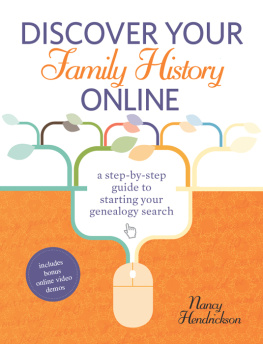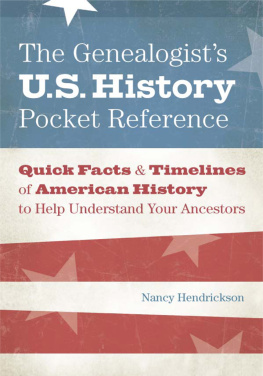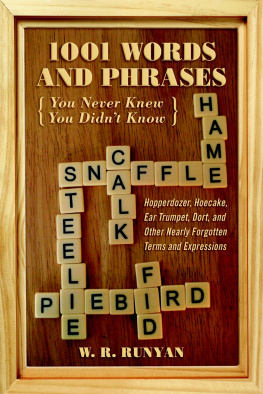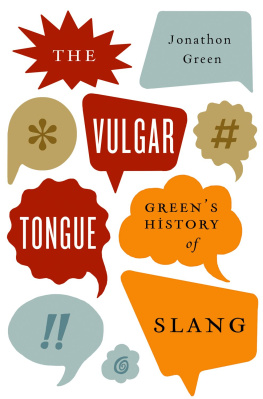God Bless America
God Bless America
The Origins of Over 1,500 Patriotic Words and Phrases
Robert Hendrickson

S KYHORSE P UBLISHING
Copyright 2013 by Robert Hendrickson
All Rights Reserved. No part of this book may be reproduced in any manner without the express written consent of the publisher, except in the case of brief excerpts in critical reviews or articles. All inquiries should be addressed to Skyhorse Publishing, 307 West 36th Street, 11th Floor, New York, NY 10018.
Skyhorse Publishing books may be purchased in bulk at special discounts for sales promotion, corporate gifts, fund-raising, or educational purposes. Special editions can also be created to specifications.For details, contact the Special Sales Department, Skyhorse Publishing, 307 West 36th Street, 11th Floor, New York, NY 10018 or info@skyhorsepublishing.com.
Skyhorse and Skyhorse Publishing are registered trademarks of Skyhorse Publishing, Inc., a Delaware corporation.
www.skyhorsepublishing.com
10 9 8 7 6 5 4 3 2 1
Library of Congress Cataloging-in-Publication Data is available on file.
ISBN: 978-1-62087-597-1
Printed in the United States of America
Publishers Note
In compiling this book, we have tried to include as many interesting selections as possible, if only to make this one of the most entertaining and exceptional works on the subject. The source material, Encyclopedia of Word and Phrase Origins by renowned etymologist Robert Hendrickson, provided thousands of meticulously researched definitions, histories, and anecdotes. Weve certainly strived to preserve the integrity of that work with this new, polished package, focusing fully on the richness of the American language and its peoples. Yet in the final analysis any selection from such a vast semantic treasure house must be highly subjective. Perhaps we have erred in devoting too much space to fascinating but speculative stories about word origins and American history, but we dont think so, for the wildest theories often later turn out to be the correct ones. The only limitations we have imposed are those of importance and interest. We hope you enjoy this trip through American linguistic history as much as we have.
Abbreviations for the Most Frequently Cited Authorities
B ARTLETT John Bartlett, Dictionary of Americanisms (1877)
B ARLETT S Q UOTATIONS John Bartlett, Familiar Quotations (1882 and 1955)
B REWER Rev. Ebenezer Cobham Brewer, Brewers Dictionary of Fact and Fable (1870)
DAREFrederic Cassidy, ed. Dictionary of American Regional English, Vol. 1, 1986; Vol. 2 (1991); Vol. 3 (1996); Vol. 4 (2002)
F ARMER AND H ENLEY John S. Farmer and W E. Henley, Slang and Its Analogues (18901904)
F OWLER H. W. Fowler, Modern English Usage (1957)
G RANVILLE Wilfred Granville, A Dictionary of Sailors Slang (1962)
G ROSE Captain Francis Grose, Dictionary of the Vulgar Tongue (1785, 1788, 1796, 1811, 1823 editions)
L IGHTER J. E. Lighter, ed., Random House Historical Dictionary of American Slang, Vol. 1 (1994); Vol. 2 (2000)
M ATHEWS Mitford M. Mathews, A Dictionary of Americanisms (1951)
M ENCKEN H. L. Mencken, The American Language (1936) O.E.D.The Oxford English Dictionary and Supplements
O NIONS C. T. Onions, The Oxford Dictionary of English Etymology (1966)
P ARTRIDGE Eric Partridge, A Dictionary of Slang and Unconventional English (1937; 8th ed., 1984)
P ARTRIDGE S O RIGINS Eric Partridge, Origins, A Short Etymological Dictionary of Modern English (1958)
P EPYS Henry Wheatley, ed., The Diary of Samuel Pepys (1954)
R ANDOM H OUSEThe Random House Dictionary of the English Language (1966)
R OSTEN Leo Rosten, The Joys of Yiddish (1968)
S HIPLEY Joseph T. Shipley, Dictionary of Word Origins (1967)
S KEAT W. W. Skeat, An Etymological Dictionary of the English Language (1963)
S TEVENSON Burton Stevenson, Home Book of Quotations (1947)
S TEWART George R. Stewart, American Place Names (1971)
W ALSH W. S. Walsh, Handbook of Literary Curiosities (1892)
W EBSTER SWebsters Third New International Dictionary of the English Language (1981)
W EEKLEY Ernest Weekley, Etymological Dictionary of Modern English (1967)
W ENTWORTH AND F LEXNER Harold Wentworth and Stuart Berg Flexner, Dictionary of American Slang (1975)
W ESEEN Maurice H. Weseen, The Dictionary of American Slang (1934)
W RIGHT Joseph Wright, English Dialect Dictionary (1900)
Many different works by the same authors, and additional works by other writers, are cited in the text.
A
aa.Aa for rough porous lava, similar to coal clinkers, is an Americanism used chiefly in Hawaii, but it has currency on the mainland, too, especially among geologists, or where there has been recent volcanic activity, mainly because there is no comparable English term to describe the jagged rocks. The word aa is first recorded in 1859, but is much older, coming from the Hawaiian aa, meaning the same, which, in turn comes from the Hawaiian a, for fiery, burning.

Abes cabe. American slang for a five-dollar bill. So-called from the face of Abe, Abraham Lincoln, on the front of the bill, and from cabe, a shortening and rhyming pronunciation of cabbage, which in slang means any currency (green). Coined in the 1930s among jazz musicians, the term is still in limited use today. See also benjamin.

abide. To endure, stand, or tolerate, usually in the negotiation sense, as in I cant abide him. Mark Twain used this expression, which has been considered standard American English since at least the early 1930s.

Abraham Lincoln. Old Abes nicknames include, among others, Honest Abe, The Railsplitter, The Liberator, The Emancipator, Uncle Abe, Father Abraham, The Chainbreaker, and The Giver of Freedom. He was called many derogatory names, too, notably the sarcastic Spot Lincoln, because he had supported the anti-Mexican War resolution in 1847, demanding that President Polk identify the exact spot where Polk claimed Mexico had already started a war on American soil. During the Civil War Lincoln was called Ape in the South, the word mocking his appearance and playing on Abe. Tycoon, in its sense of military leader, was also applied to him at that time.

absquatulate. A historical Americanism coined in the early 19th century and meaning to depart in a clandestine, surreptitious, or hurried manner, as in He absquatulated with all the funds. The word is a fanciful classical formation based on ab and squat, meaning the reverse of to squat. The Rocky Mountain News (1862) gives the following example: Rumour has it that a gay bachelor, who has figured in Chicago for nearly a year, has skedaddled, absquatulated, vamosed, and cleared out.


















